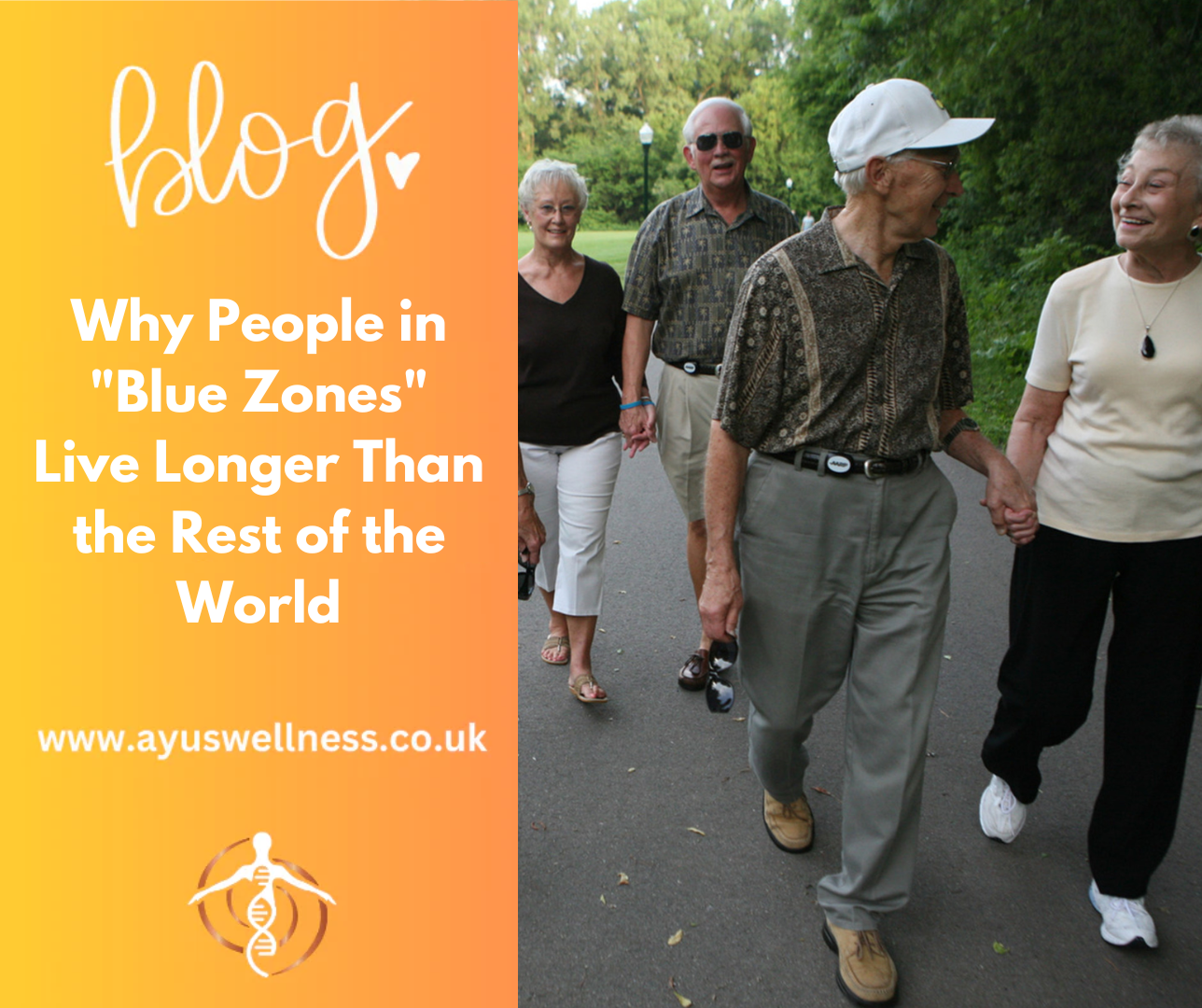
“Blue Zones” are geographic areas where people enjoy lower rates of chronic diseases and significantly longer lifespans. These regions include Italy, Greece, Japan, Costa Rica, and the US. The unique lifestyles and environments in these areas offer valuable insights into the secrets of longevity.
What are Blue Zones?
The term "Blue Zone" was coined by Dan Buettner, who identified regions with exceptionally long-lived populations. Buettner's research highlighted five key Blue Zones:
- Icaria, Greece: Known for a Mediterranean diet rich in olive oil, red wine, and homegrown vegetables.
- Ogliastra, Sardinia, Italy: Home to some of the world's oldest men, who live in mountainous regions, work on farms, and consume lots of red wine.
- Okinawa, Japan: Famous for the world's oldest women, who eat soy-based foods and practice tai chi.
- Nicoya Peninsula, Costa Rica: The Nicoyan diet revolves around beans and corn tortillas, and residents maintain physical activity into old age with a strong sense of life purpose, or “plan de vida.”
- Loma Linda, California, USA: The Seventh-day Adventists community, known for their strict vegetarianism and tight-knit communities.
Common Lifestyle Features in Blue Zones
Plant-Based Diets
A cornerstone of the Blue Zone lifestyle is a plant-based diet. While not strictly vegetarian, residents of these areas consume meat sparingly, around five times a month. Their diets are rich in:
- Vegetables: High in fiber, vitamins, and minerals, reducing risks of heart disease and cancer.
- Legumes: Beans, peas, lentils, and chickpeas, providing fiber and protein, associated with lower mortality.
- Whole Grains: Reducing blood pressure and colorectal cancer risks.
- Nuts: Packed with fiber, protein, and healthy fats, associated with reduced mortality.
In some Blue Zones, fish is a dietary staple, offering omega-3 fats crucial for heart and brain health.
Caloric Restriction and Fasting
Caloric restriction is another common practice. In Okinawa, people follow the 80% rule, or “hara hachi bu,” stopping eating when they feel 80% full. This prevents overeating and chronic disease. Eating slowly also helps with hunger control and fullness.
Moderate Alcohol Consumption
Moderate alcohol consumption, particularly red wine, is typical in Blue Zones. Red wine, rich in antioxidants, is consumed daily in places like Icaria and Sardinia. However, benefits are only seen with moderate intake; excessive consumption increases health risks.
Built-In Exercise
Exercise in Blue Zones is not about gym routines but is integrated into daily life through gardening, walking, and other chores. This habitual physical activity helps reduce cancer, heart disease, and overall mortality risks.
Adequate Sleep
Sleep is a vital factor in Blue Zones. Residents ensure they get enough rest, often including daytime naps. Optimal sleep duration is around seven hours per night, and short naps can benefit heart health.
Other Longevity Traits
In addition to diet, exercise, and sleep, other factors contribute to the longevity of Blue Zone residents:
- Spirituality and Religion: Many Blue Zones have strong religious communities, providing social support and reducing depression.
- Life Purpose: Having a sense of purpose, known as “ikigai” in Okinawa or “plan de vida” in Nicoya, enhances psychological well-being and longevity.
- Family and Social Networks: Multigenerational living and strong social ties, or “moai” in Okinawa, support mental and physical health.
Conclusion
The Blue Zones offer a blueprint for a longer, healthier life. By adopting a plant-based diet, incorporating daily physical activity, practicing moderate alcohol consumption, ensuring adequate sleep, and fostering strong social and family ties, we can strive to add years to our lives and enhance our overall well-being. Embracing these lifestyle factors may help reduce the prevalence of chronic diseases and improve life expectancy, making the secrets of the Blue Zones accessible to all.



